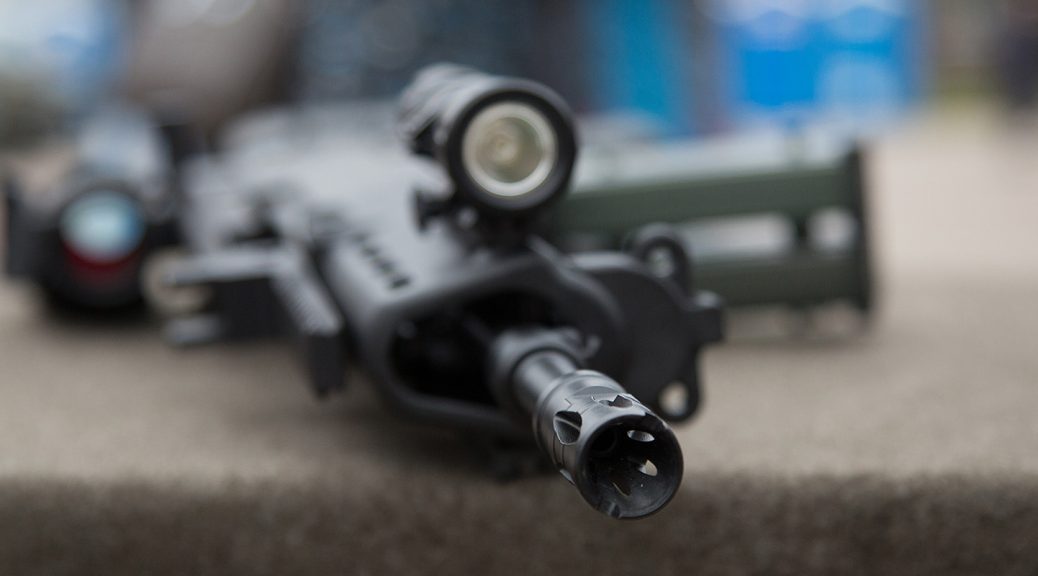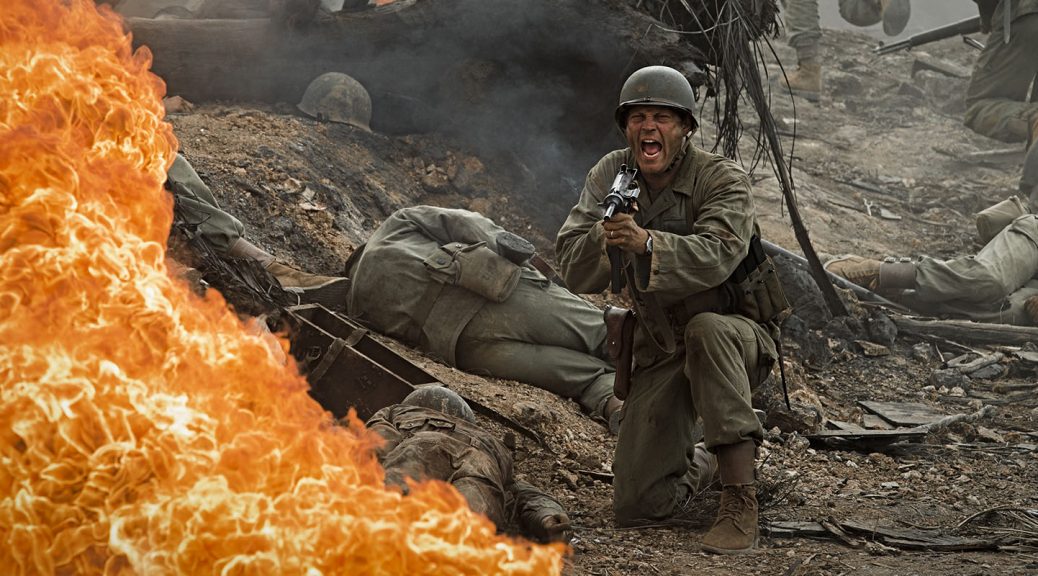
One man refused to carry a weapon, the other willingly embraced violence in order to protect the innocent – who can say who was right?
By Kent Kingston.
Meet Sam Childers. In many ways he’s about as different from Hacksaw Ridge’s Desmond Doss as you can imagine. In other ways, he’s remarkably the same.
Sam Childers is a patriotic American from the backwoods of Pennsylvania. After a misspent youth and young adulthood of drugs, violence and crime, he began to reform his lifestyle, worried that if he kept on with the way he was going, he’d soon be dead. Following his wife back to the Baptist faith of her childhood, Sam became a committed believer himself, even taking to the pulpit at times.
The story could’ve ended there, with Sam approaching old age gracefully as his construction business prospered, his porch rocking chair surrounded by adoring grandchildren. But a church mission trip to Sudan changed all that. Confronted by the violence and suffering he saw there and sensing clear direction from God, Sam sold his business and began a lifelong campaign to rescue the war-traumatised children of what is now South Sudan. Together with local and overseas supporters, Sam built an orphanage that has fed and housed more than 1000 children over the years. He also began to mount armed expeditions to rescue children kidnapped by Joseph Kony’s brutal terrorist group, the Lord’s Resistance Army.
Yes. Armed expeditions. That’s how Sam Childers differs from the thousands of other humanitarians who have devoted their lives to relieving poverty and suffering in developing countries. And in contrast with the political wariness of most foreign aid workers, Sam became quite friendly with a number of southern rebel militiamen, who accompanied him as he willingly shouldered an AK-47 on his rescue missions.
And so the legend of the Machine Gun Preacher was born — and the film. Like Desmond Doss, Sam’s story has been immortalised on the silver screen, with Gerard Butler (Tomb Raider: Cradle of Life, Phantom of the Opera, 300) in the lead role.
Two men. Both patriotic Americans. Both claiming the call of God prompted their lifesaving work in warzones. But while one man refused to carry a weapon, the other has willingly embraced violence in order to protect the innocent.
The contrast between these two brave men poses all kinds of questions. Which of them made the right choice in relation to violence? Did one or the other of them get their message from God garbled? Were their missions really a result of divine calling or just overactive imaginations? Can we realistically explain their consistently selfless actions without some kind of otherworldly guidance?
“For everything there is a season, a time for every activity under heaven,” said Solomon, king of ancient Israel and reputedly the wisest man who ever lived. “A time to be born and a time to die. A time to plant and a time to harvest. A time to kill and a time to heal…”
Sobering words, and not ones to be taken lightly, considering the violence that has been done, and is still being done, by those marching under the banner of religion or freedom or national pride. What’s your answer? Is there “a time to kill”?
